#Carnivorous Plants
Explore tagged Tumblr posts
Text
when I was in college in botany classes we talked about ‘cheap’ vs ‘expensive’ leaves and how some leaves are grown to be shed at the end of the fall and some leaves have a lot more resources invested and are meant to last years and then I think about the Doohicky of leaves, the Asian pitcher plant carnivorous leaves that have all the bells and whistles…..the shit has glands secreting digestive enzymes in the bottom and slippery teeth on the top and wax crystals lining the inside so insects can’t climb out….fangs on the top lid and hairs on the outside and mottled special colorization….some of them are woody or otherwise reinforced and take years to make… local guy in rural sumatra forced to make elaborate luxury saw traps by hand every single day of his life, it is the only way he can live,
5K notes
·
View notes
Text

7K notes
·
View notes
Photo

How many species of Carnivorous Plants can be found in each U.S. State?
1K notes
·
View notes
Text
This is so cool.
Tell me you've never wanted a molting cicada plushie. It's got iridescent wings. LOOK AT IT.
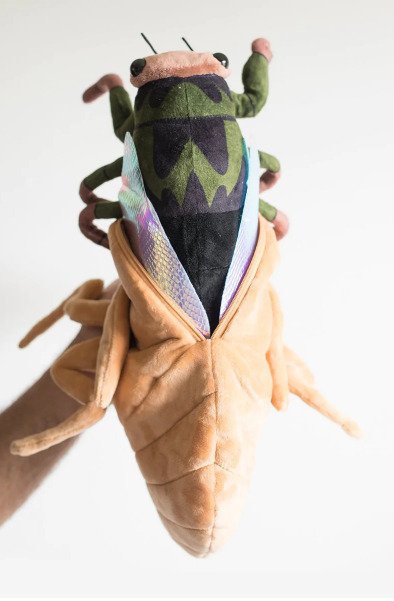
Also got a pitcher plant backpack...with a doomed caterpillar. Sorely tempted.

(he also makes glow in the dark plants) (and breeds monstera) (and has a free downloadable guide to plant breeding for cool characteristics)
anyway support independent artists or something? that make cool things?
#art#bugs#plants#insects#invertabrates#cicadas#pitcher plant#caterpillars#carnivorous plants#vegetarian bugs
12K notes
·
View notes
Text

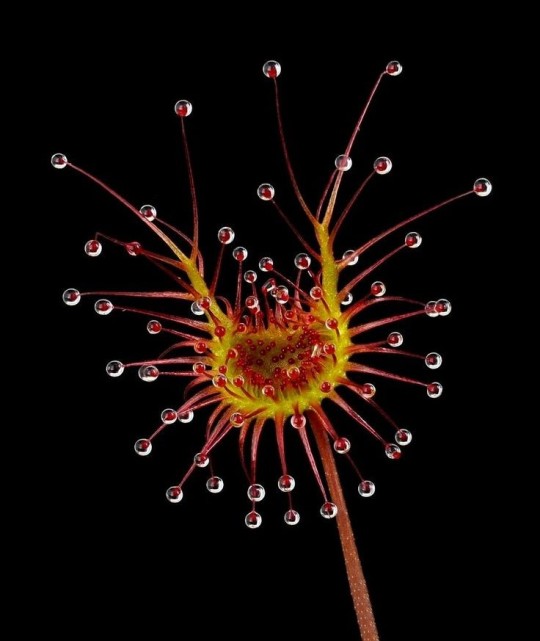



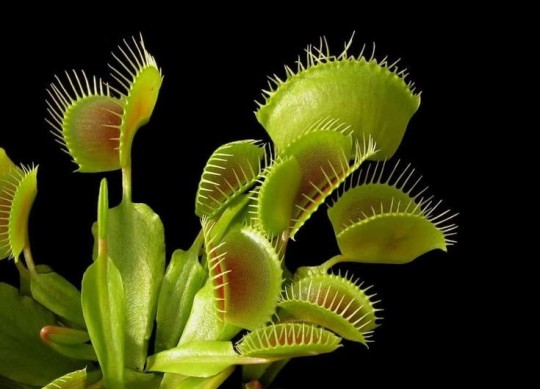
8K notes
·
View notes
Text
Day 13 of my 2024 favorites: Pitcheresque
My favorite local haunt has a few patches of pitcher plants in various spots and they always make me happy. On a particularly rough mental day early in the year I caught a patch blooming at sunset. They were lovely. 💛


235 notes
·
View notes
Text
MORE SUNDEW KITS AVAILABLE! A tiny carnivorous plant swamp that should grow for you even if you IGNORE IT ENTIRELY, by which I mean the following are some jars I have never touched (let alone opened) in over six months to a year:
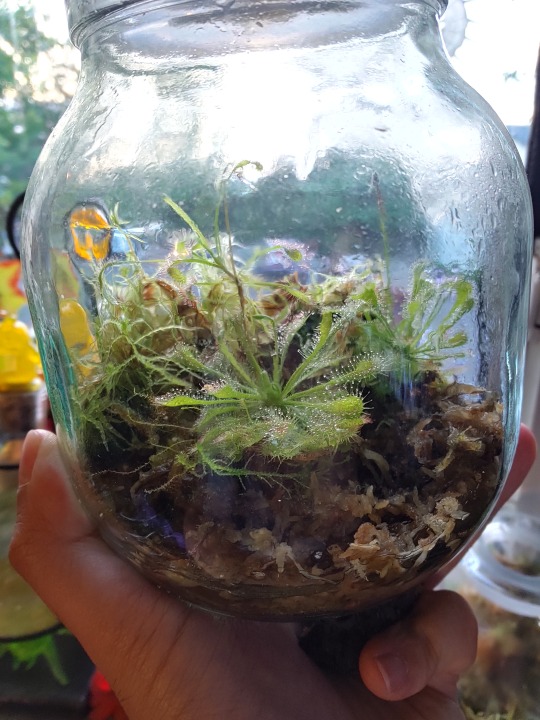
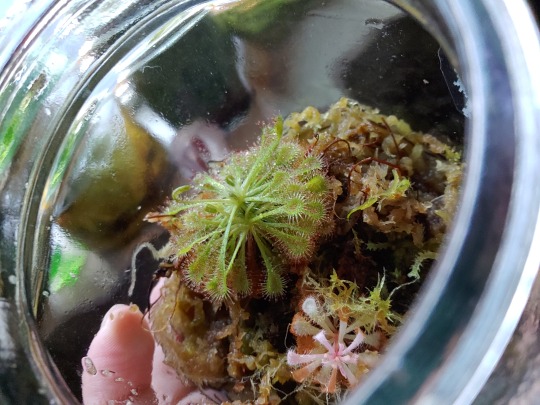

This is the scale of the little baby sundews I will send you:
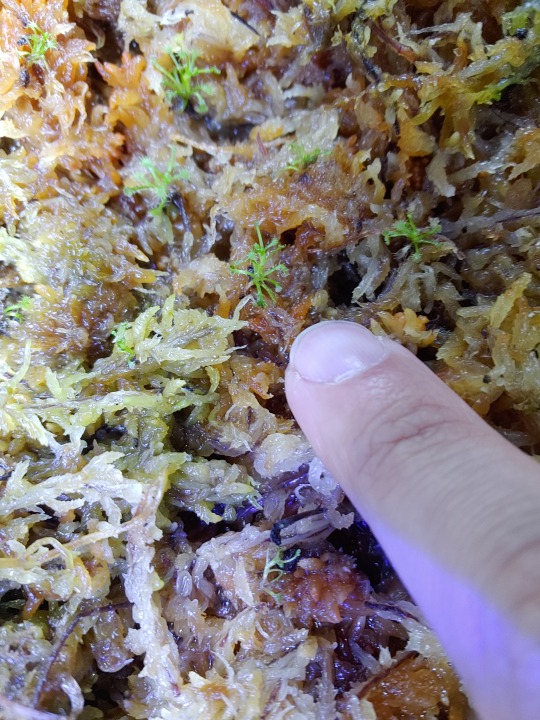
Here's how the sphagnum moss can grow depending on conditions:

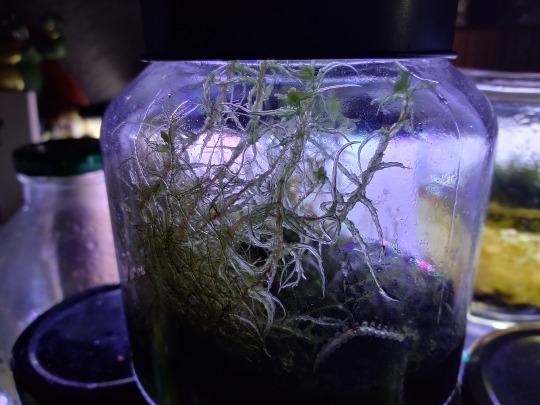
Tinier little plants and liverworts will also come in your moss! Includes instructions in the box but here's some FREQUENTLY ASKED QUESTIONS:
Don't they ever need air?!
-No! Some plants can't handle but the processes of Photosynthesis and a symbiotic microbiome allow many plants to live in an airtight container as long as it holds any moisture.
Do I need to water these?
-No! If they're in a properly sealed clear container that never loses moisture, you will never have to water these. If you do need to add water for any reason though it HAS to be distilled, reverse osmosis water, or fresh rain water, not just filtered or purified water. Luckily you can buy distilled water by the gallon at any grocery store! This is the one rule you have to take to the letter; carnivorous plants grow in such a strict type of wetland, even water from most healthy natural ponds will kill them!
How often do they need to be fed?
-Technically never. As carnivorous plants they will grow bigger, faster and more colorful if you give them tiny prey, such as ants or fruit flies, and some people have success with crumbs of fish food, but be sure to remove any food that gets moldy. If you NEVER feed them, they will still grow anyway, just scrappier.
What about climate?
-Sundews are generally fine as long as they don't freeze solid or roast at over 100f for too long, but can still bounce back even from a little frost or a heat wave, basically more temperature-resistant than you probably are! What are their light requirements? -ANY light that plants can live on, including plant-friendly indoor LED lights! Sundews can make do just fine in fairly low to medium light, but also enjoy intense, full blast sunlight, which can even turn them reddish pink over time. As long as they aren't in total darkness, they should do alright! What about the mosses?? -Sphagnum moss grows right alongside sundews in the wild and enjoys all the same conditions!
What if it dies anyway?!
-Sometimes a sundew dies down naturally, especially after it produces a flower or under prolonged winter cold, but leave it be and you might eventually notice new growth. Here's one of mine that turned completely brown and rotten looking, then months later, every leaf sprouted a baby one:
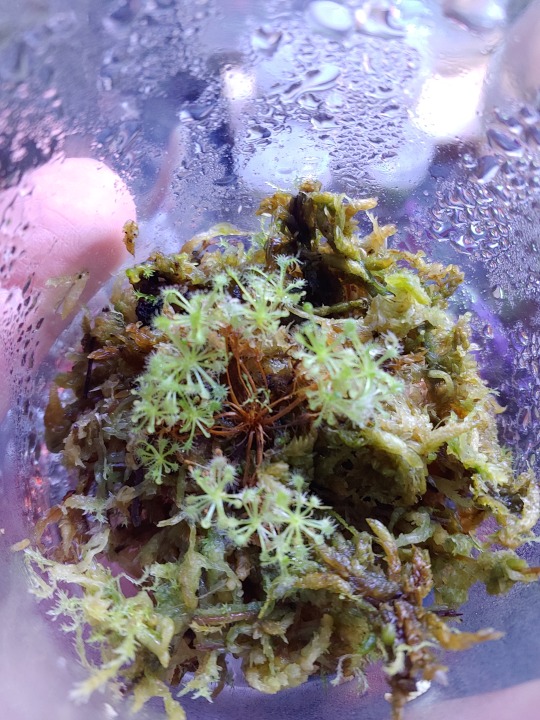
494 notes
·
View notes
Text
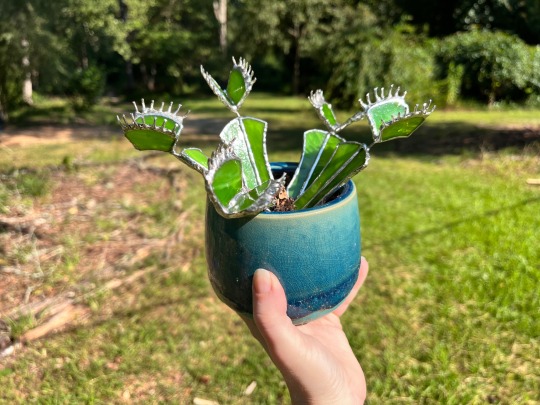
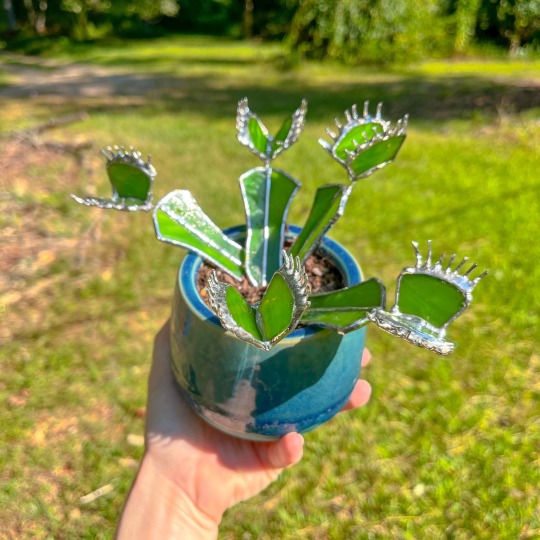
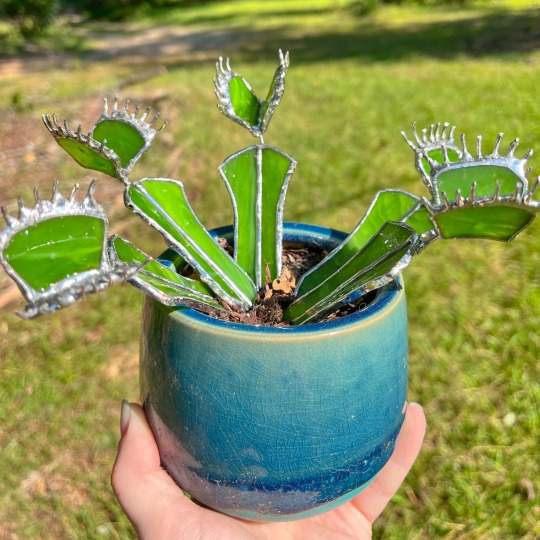

Making these really sucked but mostly because of the teeth on the traps. If I do another I have some other ideas to try & would also vary the sizes of traps. Pretty good for my first stained glass 3D thing! Finally a carnivorous plant I can’t kill.
#art#glass art#stained glass#glass#venus fly trap#venus flytrap#carnivorous plant#carnivorous plants#sculpture#3d#houseplants#palaeo#palaeosinensis#paleo panthera#paleopanthera#green#spooky#Halloween#spooky decor#Halloween decor#witch#potted plants
2K notes
·
View notes
Text
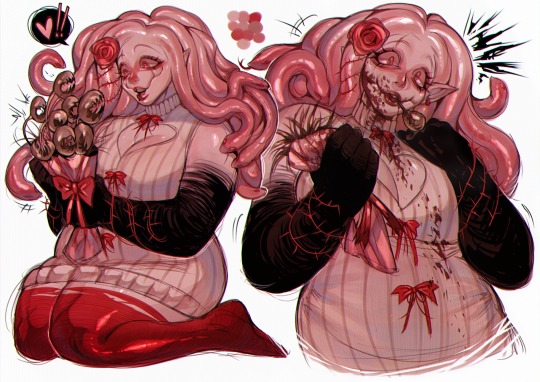
Rosa eating carnivorous plants 🌱🍴
#oc#my art#drawing#medibang#character design#concept art#horror#creepy#snakes#medusa#pink#gorgon#carnivorous plants
1K notes
·
View notes
Text
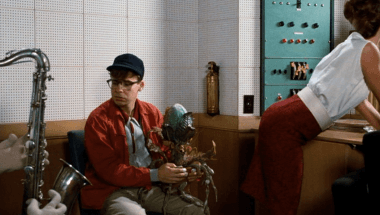
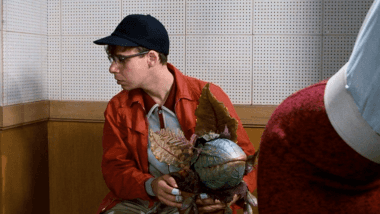
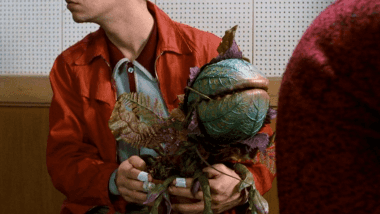
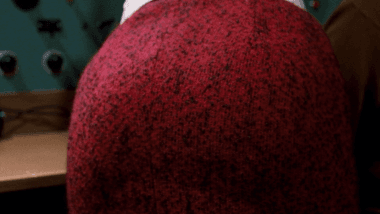
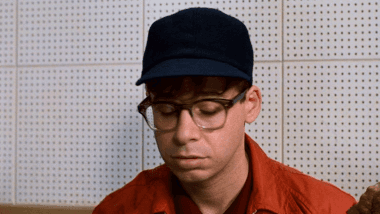
Little Shop of Horrors (1986)
#little shop of horrors gif#rick moranis gif#audrey ii gif#frank oz#horror comedy#80s musicals#practical effects#carnivorous plants#seymour krelborn#80s movies#1980s#1986#gif#chronoscaph gif
2K notes
·
View notes
Text

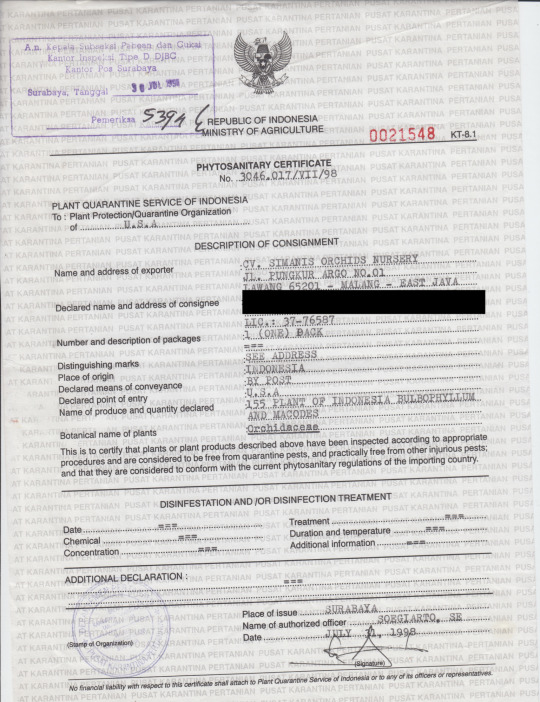
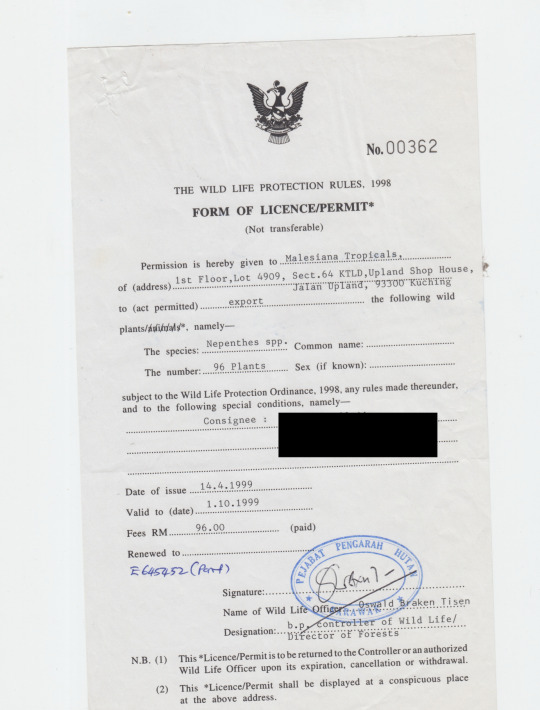

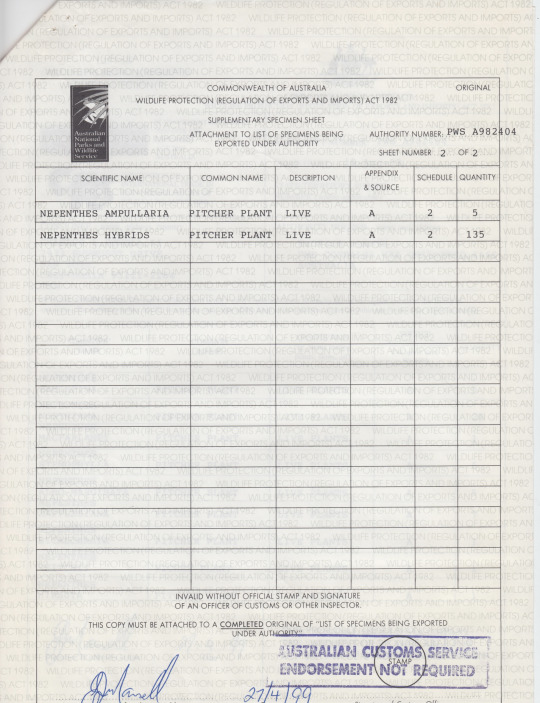
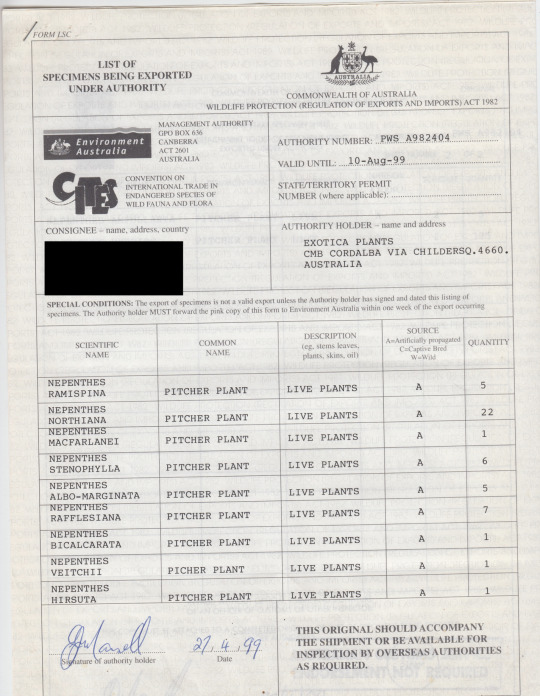
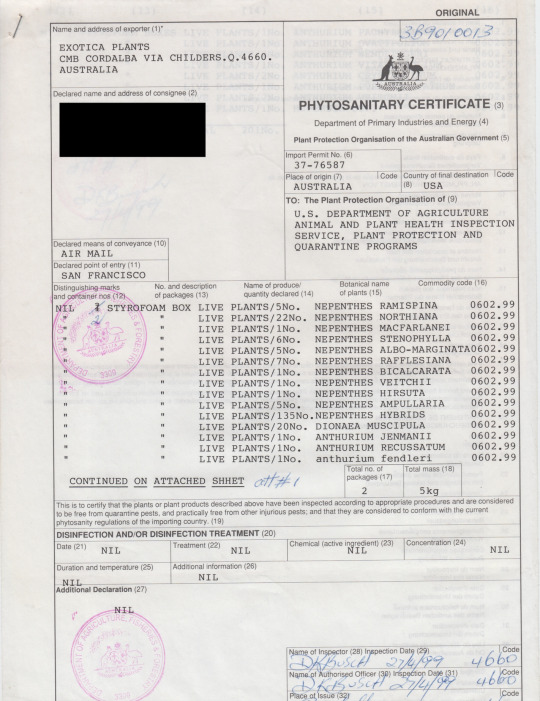
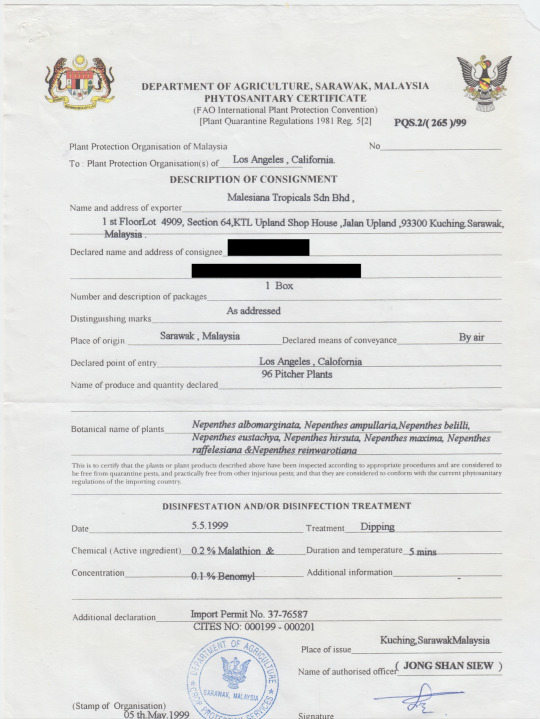
ok INCREDIBLY old content originally meant for this blog but in 2018 when i was just a wee lad with a little spinner propeller hat and big rainbow lollipop i went to a carnivorous plant convention in california and met a bunch of people who breed/collect/study these guys. one person was this collector who was slowly working on leaving the hobby or at least no longer growing plants, and he had a bunch of carnivorous plant related files he was charging like 50 cents for or something, and so i came into possession of these, which are examples of the kind of paperwork you have to have done to legally ship/trade endangered species of both plants and animals. functionally very boring paperwork, but something i found like, incredibly fascinating. i blacked out the personal id of the person and then immediately forgot to ever upload them, lmao.
these plants were bred and raised in a greenhouse and sold abroad, not taken from the wild, but because the species are endangered and often protected in their native countries (most of these are nepenthes, asian pitcher plants, a huge family spread throughout oceania and southeast asia), there's a lot more documentation that needs to be done regardless of their origin, both on the end of the seller and on the end of the buyer.
the rabbit hole on carnivorous plant trade is deep and kind of wild. there's plenty of common, non-threatened, greenhouse-grown pitcher plants on the market that people buy all the time, even non-collectors, but there's a whole debate to be had on if it's morally okay to be collecting the more endangered/rare of these plants in the first place. the big argument for breeding is that breeding them in captivity means there's more supply that's not poached from the wild, meaning poachers have less of an incentive to take the risk of taking adult plants from their habitats; from what i've heard, sometimes countries will issue permits for breeders to collect some wild seeds just to create a non-wild breeding pool to drive down the price. predictably, however, you also get people who are very much willing to pay a lot of money to get as rare of a plant as possible.
anyone familiar with the allure valuable plants have had over people throughout history can imagine the rest, but here's an article about a guy who started buying poached plants to enrich his private nepenthes collection, who then got busted by a fish and wildlife service agent embedded in his carvirorous plant circle. the plants this guy was buying were being sold to him without any CITES paperwork or declarations like the ones above; it was literally just a guy in indonesia taking rare plants from the woods around where he lived, selling them over facebook marketplace and ebay, and mailing them overseas as an undeclared 'gift' to get around customs. frighteningly small steps to take on all sides, to be honest.
(also, fun fact: another example of carnivorous plants that get poached are wild venus fly traps, which are only native to north and south carolina in the US. from what i understand it's a mix of people who genuinely did not know it's a native species and people who really are just going out into the woods and digging up plants to sell online. sometimes poaching is closer to home than you'd think!)
anyway. wild and interesting times in the land of plants recovered from a hard drive lmao
#nepenthes#annual 'plant poaching happens and it doesnt always look like the movies' post i suppose but also i think its really interesting#also the CITES system could do with an overhaul in how it approaches plants as well from what i understand but thats another thing#ive heard that like many systems like this they do not have the same urgency for plants as they do for animals#mostly because people just!! they dont get plants man!! they just say whatever its a plant!!#and poaching in general is only ever talked about like its with taking elephants for their tusks and stuff#also important conservation work but sometimes poaching really is just a guy with a shovel and that shit is WILD#carnivorous plants
525 notes
·
View notes
Text

I saw this month’s challenge posted by @characterdesignchallenge was #carnivorousplants so I decided to try my hand at it while staying on theme with my fairy tale Halloween Patreon theme I am also doing this month. So here we have the Queen of Hearts Rose Bush. She only excepts hearts as nourishment and if none are offered she will hunt them down herself. 😉
#jessicamadorran#jmadorran#characterdesign#cdchallenge#characterdesignchallenge#fairytale#aliceinwonderland#queenofhearts#patreon#patreonartist#carnivorous plants
208 notes
·
View notes
Note
perhaps these for the walls of your -imminent, if there’s justice in the world- cicada lamp room
https://www.instagram.com/p/B7USlctHUVb/?igsh=ZGVhdGV1MDk5Y3Jx
Holy shit I was impressed when I I thought these were just nice photography prints but to realize that is GLASS?? Unreal artistry here


Definitely adding to the fantasy house with biology decor that exists in my mind
179 notes
·
View notes
Text

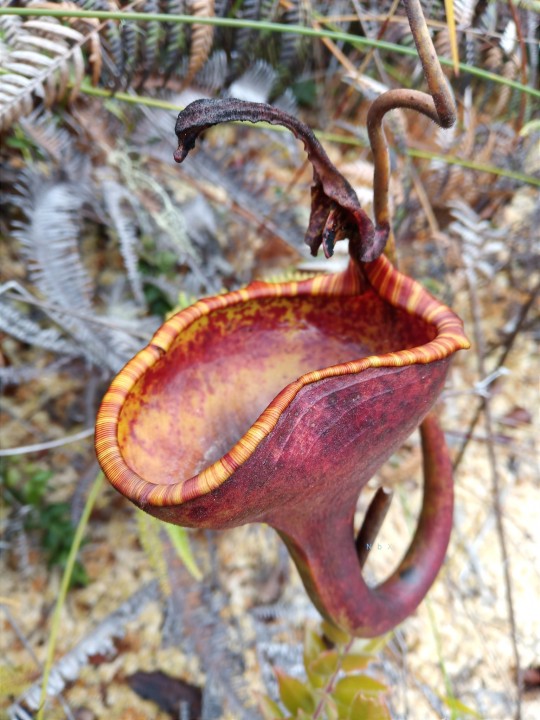
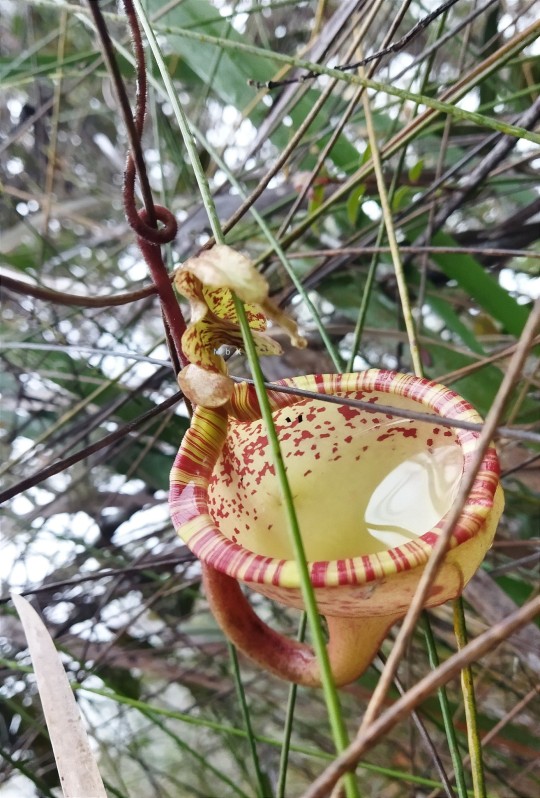
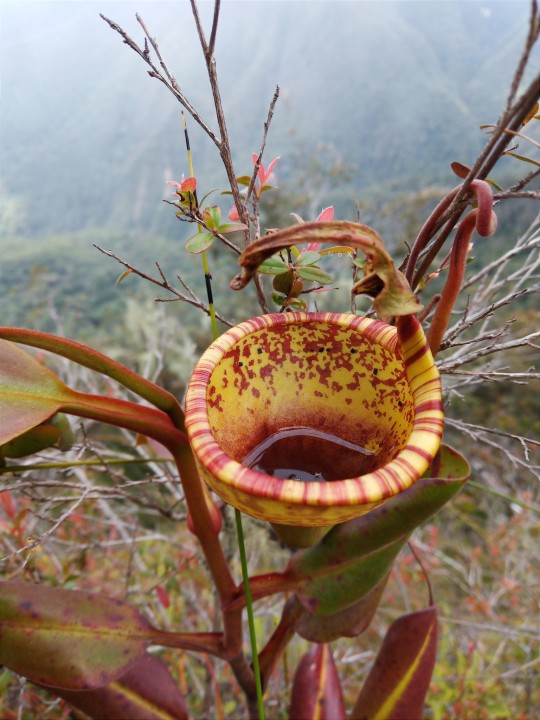
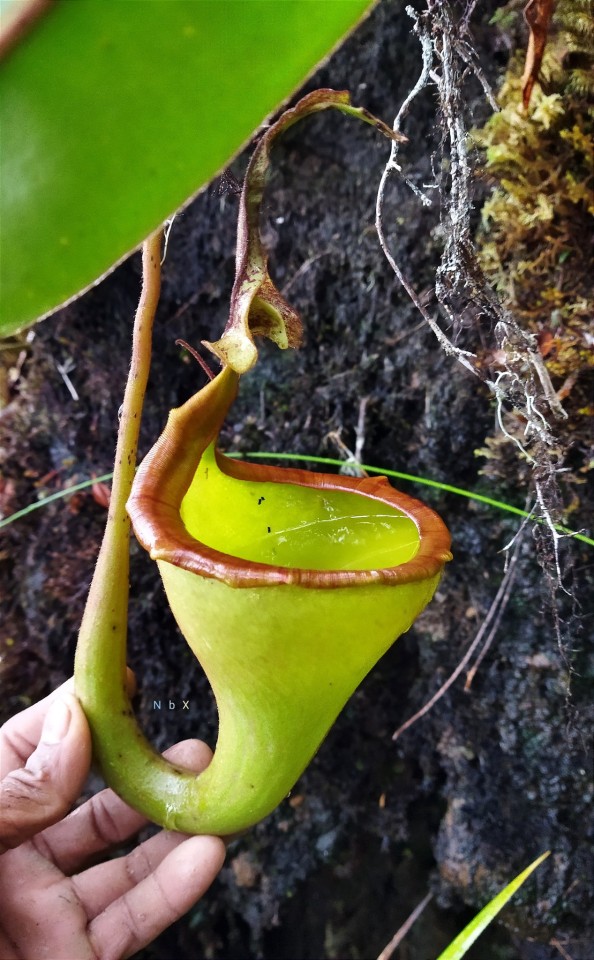
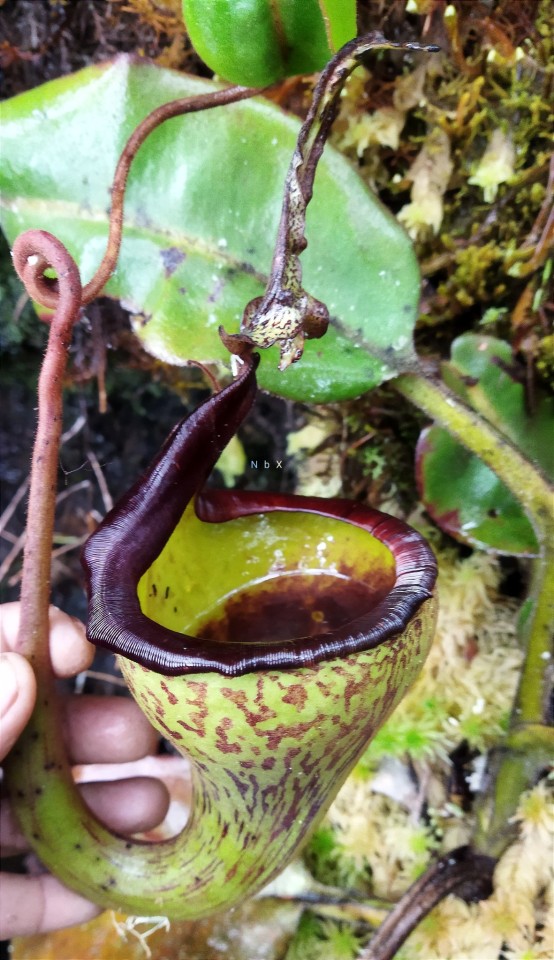

Upper pitcher plants.
Nepenthes Eymae is a colorful plant. very amazing species and beautiful to the eye! Central Sulawesi endemic species. is in the wild in a mossy forest above 1000m.
#plants#nepenthes#carnivorous plants#botany#nepenttheseymae nepenthes eymae pitcherplants carnivoruosplant carnivorousplants species amazingplants nepentheshighland icps
1K notes
·
View notes
Text
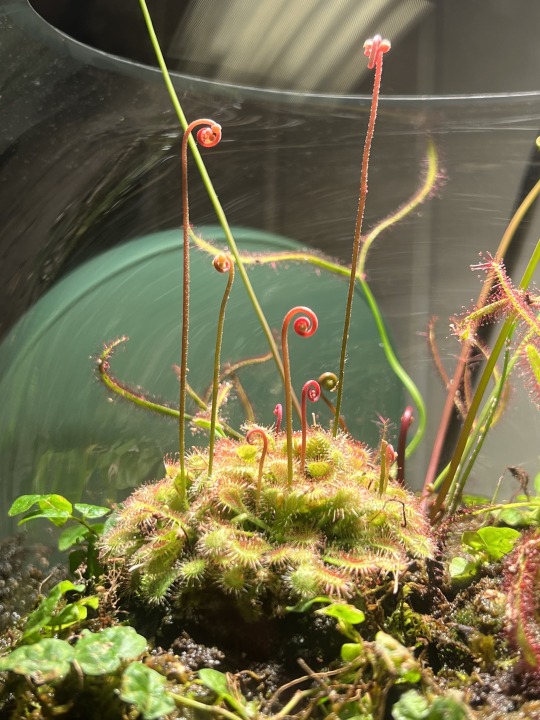
The flower spikes look very seussian
893 notes
·
View notes
